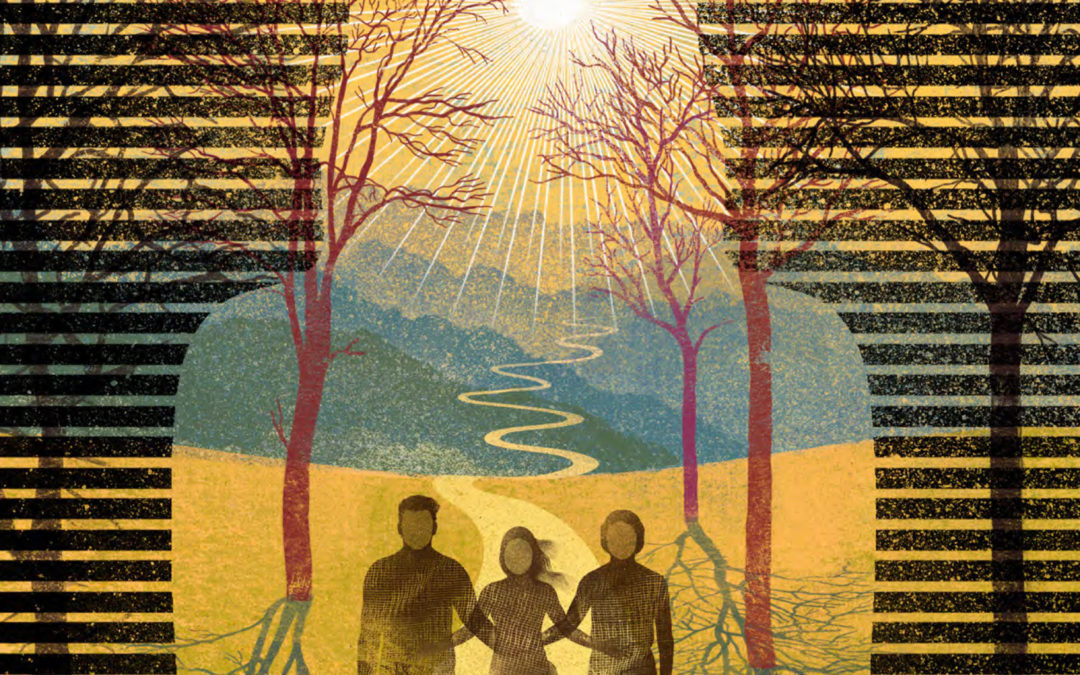–by Diane Norstad
“Who are your ‘real’ parents?” That question was my first sense of being different in a negative way. My parents had told me about my adoption when I was little. We always thought of it as a good thing. As the Apostle Paul tells us in Galatians 4:4-6,
But when the fullness of time had come, God sent his Son, born of a woman, born under the law, in order to redeem those who were under the law, so that we might receive adoption as children. And because you are children, God has sent the Spirit of his Son into our hearts, crying, “Abba! Father!”
The topic of my being adopted had first come up outside the family in Mr. Hansen’s fifth grade class. We were supposed to introduce ourselves to the class and share one unique thing about ourselves. I shared that I was adopted. From the back of the room, I was called a very harsh name. This led to a direct trip to the principal’s office. There were many questions about my “real” parents in the next few days. Adoption no longer made me feel special. I felt ostracized and like an “unwanted child.” I don’t remember having the courage to talk to my parents about this.
There were great Sunday school teachers at our church. While some of the kids made me feel unwanted, my teachers taught me that there was no doubt that God loved and wanted me. As I grew up, I found in studying God’s word that I was in great company. Queen Esther was adopted (Esther 2:7 & 15), and so was Moses (Acts 7:21). These two were big time famous.
The story that shaped me the most, however, was the story of our Savior, Jesus Christ. I don’t remember the church using the phrase “out of wedlock” for his birth, but I was quite aware that Mary and Joseph weren’t married. From what I knew, my original parents weren’t married either. Joseph wasn’t even Jesus’ father! What Joseph did do was choose to become a dad. It wasn’t easy. Joseph had his reservations. He knew he wasn’t the biological father, and that bothered him. Many men and women today might stress about becoming a parent to a child through foster care, adoption or stepparenting. Fortunately for Joseph, God gave clear direction.
Now the birth of Jesus the Messiah took place in this way. When his mother Mary had been engaged to Joseph, but before they lived together, she was found to be with child from the Holy Spirit. Her husband Joseph, being a righteous man and unwilling to expose her to public disgrace, planned to dismiss her quietly. But just when he had resolved to do this, an angel of the Lord appeared to him in a dream and said, “Joseph, son of David, do not be afraid to take Mary as your wife, for the child conceived in her is from the Holy Spirit. She will bear a son, and you are to name him Jesus, for he will save his people from their sins.” All this took place to fulfill what had been spoken by the Lord through the prophet: “Look, the virgin shall conceive and bear a son, and they shall name him Emmanuel,” which means, “God is with us.” When Joseph awoke from sleep, he did as the angel of the Lord commanded him; he took her as his wife, but had no marital relations with her until she had borne a son; and he named him Jesus (Matthew 1:18-25).
Joseph was faced with a situation that he didn’t see coming. Even before the angel, though, Joseph chose to be kind. “Unwilling to expose her to public disgrace” is quite the understatement. The punishment for adultery according to the Mosaic Law was public stoning! The community was willing to deal harshly with Mary, but Joseph was not. Joseph, like many men today, was just an ordinary good person. The decision to parent comes from goodness and love. While Joseph had a serious assist from an angel in his decision-making, following his example in choosing the goodness of parenting is a decision we can all look up to.
We can definitely relate to Joseph as a person today. Joseph probably did some of the same things my dad did with me. Dad picked me up when I scraped a knee, taught me how to work and loved me. I was his own, no matter what anyone had to say. Joseph and my dad stepped up to raise children that they didn’t have to raise. They chose to raise and love us.
Joseph’s story is the story of the unsung Christmas hero. He’s no different than any adoptive, foster or stepparent today. Loving a child is a choice. More importantly, families are made by God’s love and not only by biology.
The Rev. Diane Norstad has served Faith Evangelical Lutheran Church of Balsam Lake, Wisconsin, for more than ten years. She is an avid quilter, camper and reader. She and her husband have one daughter.
This article is excerpted from the December 2018 issue of Gather magazine. To read more like it, subscribe to Gather.



Thank you!
Awesome story. I have known many adopted children and recently have an adopted grandson in law. He was told of his adoption at an early age and now as a grown man he is not interested in knowing his bio. mother. He just became a new father ( my youngest great grandson who they named Branch), so I’m thinking that may change. His adopted father died at a young age. His Mom remarried and her husband raised him as his father. Very good people. This Grandson in law has very good qualities about him and I can’t help wonder about his Bio mom and about his bio father if he is even alive etc.